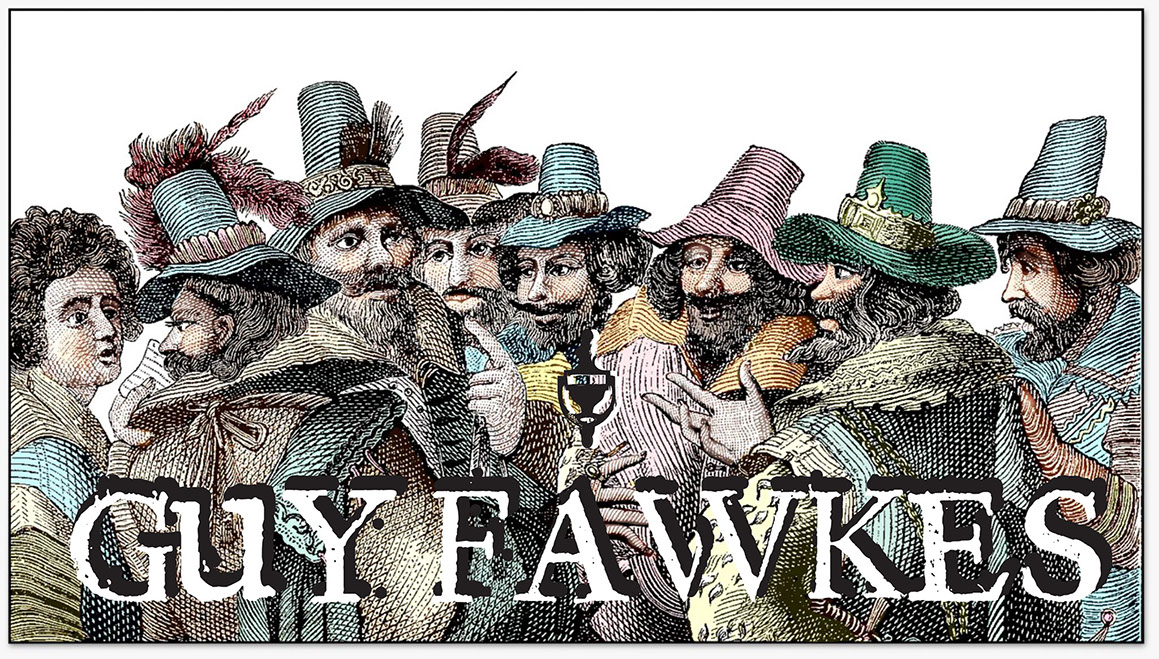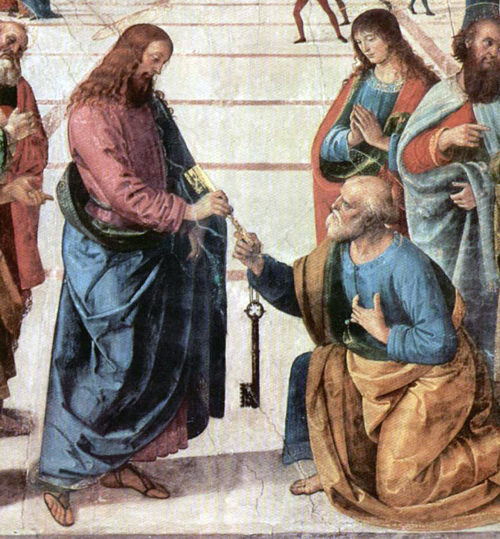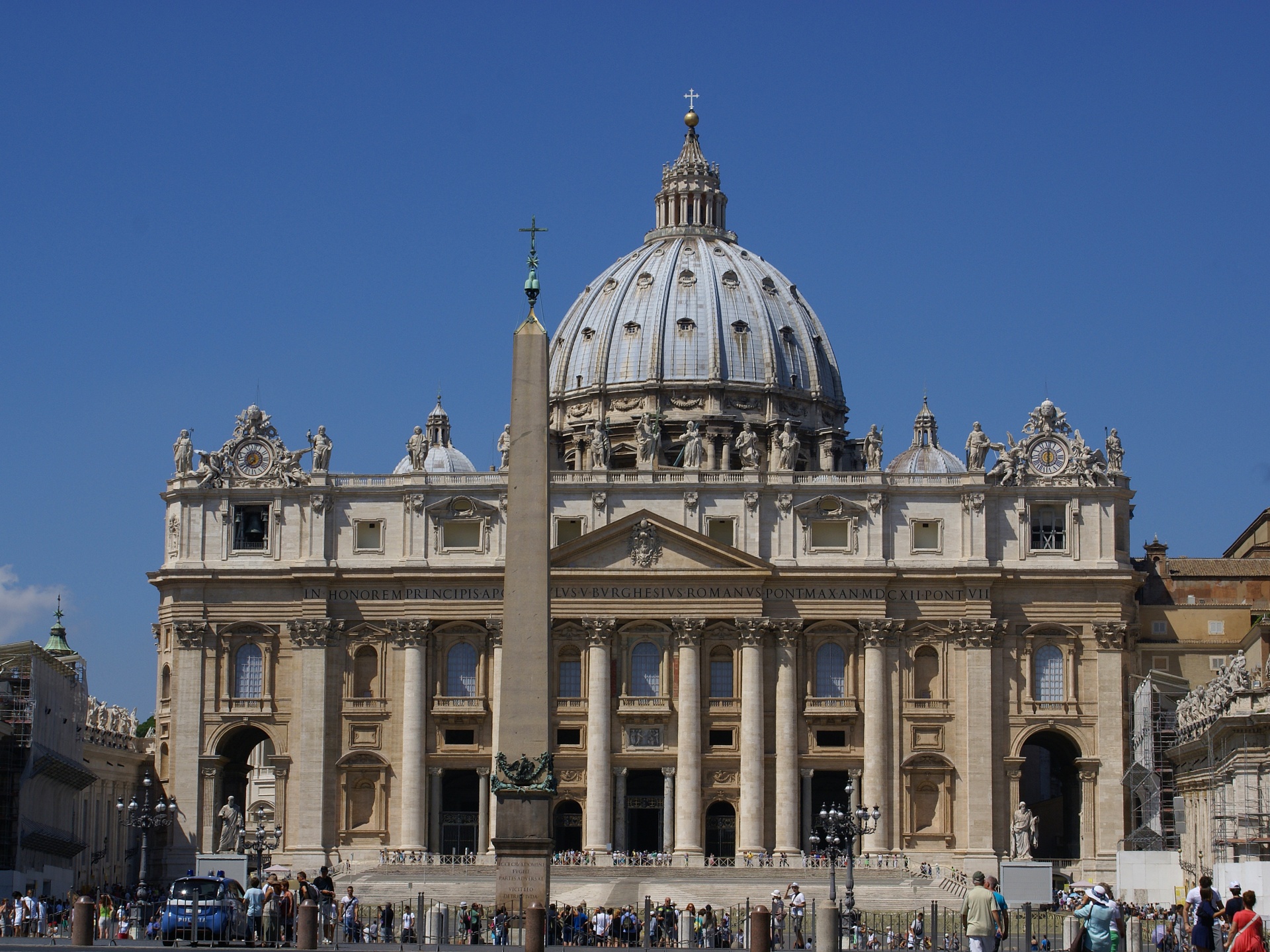By drawing from Scripture and the teachings of Scott Hahn and the St. Paul Center
The Catholic priesthood did not emerge in a vacuum. Rooted deeply in the covenants of the Old Testament and fulfilled in the New, it continues the story of salvation history in a way that is both ancient and ever new. According to theologian Dr. Scott Hahn and the St. Paul Center for Biblical Theology, the Catholic priesthood stands in continuity with both the priesthood of Melchizedek and the Aaronic (Levitical) priesthood, but is ultimately a participation in the one eternal priesthood of Jesus Christ.
In Genesis 14, Melchizedek appears briefly but powerfully. He is described as “king of Salem” and “priest of God Most High.” Unlike the Levitical priests who would come later, Melchizedek is not a priest by genealogy or tribal affiliation. He offers bread and wine—a striking departure from the animal sacrifices that would characterize the temple system—and blesses Abraham.
Psalm 110:4 declares, “You are a priest forever, according to the order of Melchizedek,” a prophecy later applied directly to Christ in the New Testament. The Letter to the Hebrews (chapter 7) affirms that Jesus is a priest not according to the line of Aaron, but according to the eternal priesthood of Melchizedek.
Scott Hahn teaches that this mysterious figure prefigures Christ Himself: both are priest-kings, both offer bread and wine, and both are appointed directly by God rather than by human lineage. The Catholic priest, then, who offers the Eucharist under the signs of bread and wine, participates in this Melchizedekian order—not by personal merit or tribal descent, but through the grace of Christ.
The priesthood of Aaron and the Levites was established in the time of Moses. It served the tabernacle and later the Temple, offering animal sacrifices and maintaining ritual purity among the people. These priests mediated between God and Israel, but their sacrifices could never fully take away sins (cf. Hebrews 10:1-4).
The Levitical priesthood was temporary, hereditary, and unable to perfect the conscience of the worshiper. Yet, as Hahn explains, it served a critical role in forming the identity of Israel and preparing them for the coming of the Messiah. It acted as a type—a foreshadowing—of the true priesthood that would be established in Christ.
In this light, the Catholic priesthood does not abolish the Levitical priesthood, but transforms and fulfills it. What the sons of Aaron did in shadow, Catholic priests now do in substance—offering not repeated sacrifices of animals, but the once-for-all sacrifice of Christ, made present in the Eucharist.
Jesus Christ is the one High Priest of the New Covenant. Through His death and resurrection, He offers the perfect sacrifice, once and for all, in the heavenly sanctuary (Hebrews 9:11-14). Catholic priests do not replace this sacrifice, but rather make it present to the faithful through the sacrament of the Eucharist. This is not a new sacrifice, but the same one, re-presented in an unbloody manner.
Through the sacrament of Holy Orders, priests are configured to Christ and act in persona Christi capitis—in the person of Christ the Head. This is not merely symbolic. As Hahn frequently emphasizes, the priest is an icon of Christ, mediating grace to the Church and standing at the altar as both servant and father.
Just as Melchizedek brought bread and wine, and as the sons of Aaron interceded for the people, so the Catholic priest offers, mediates, and blesses—but in a way made effective by Christ’s definitive work on the Cross.
The Catholic priesthood is thus neither a mere repetition of the Old nor a break from it, but a transformation and fulfillment. As Hahn writes, “The Old is revealed in the New, and the New is hidden in the Old.” The priesthood finds its deepest meaning not in bloodlines or law, but in the person of Jesus Christ—eternal High Priest, the true Melchizedek, the fulfillment of every shadow cast by Aaron.
For those wishing to explore this more deeply, consider the following resources:
-
"Letter to the Hebrews", commentary by Scott Hahn (Emmaus Road Publishing)
-
"Catholic for a Reason", Vol. I, especially essays on the sacraments
-
The Bible and the Mass, video series from the St. Paul Center
-
It Is Right and Just: Why the Future of Civilization Depends on True Religion, by Scott Hahn and Brandon McGinley






